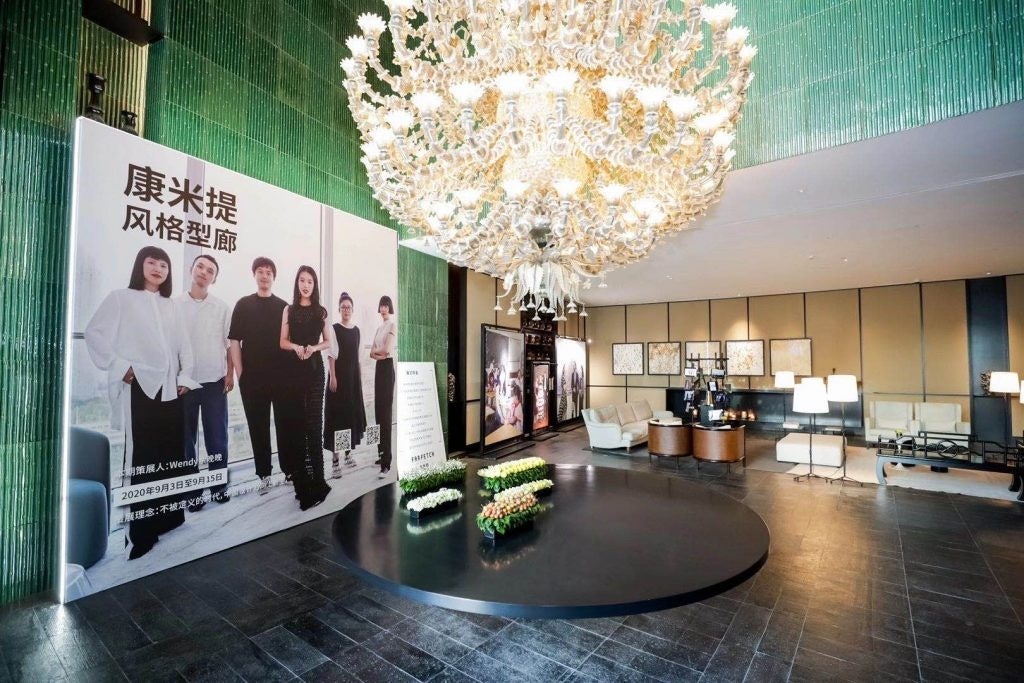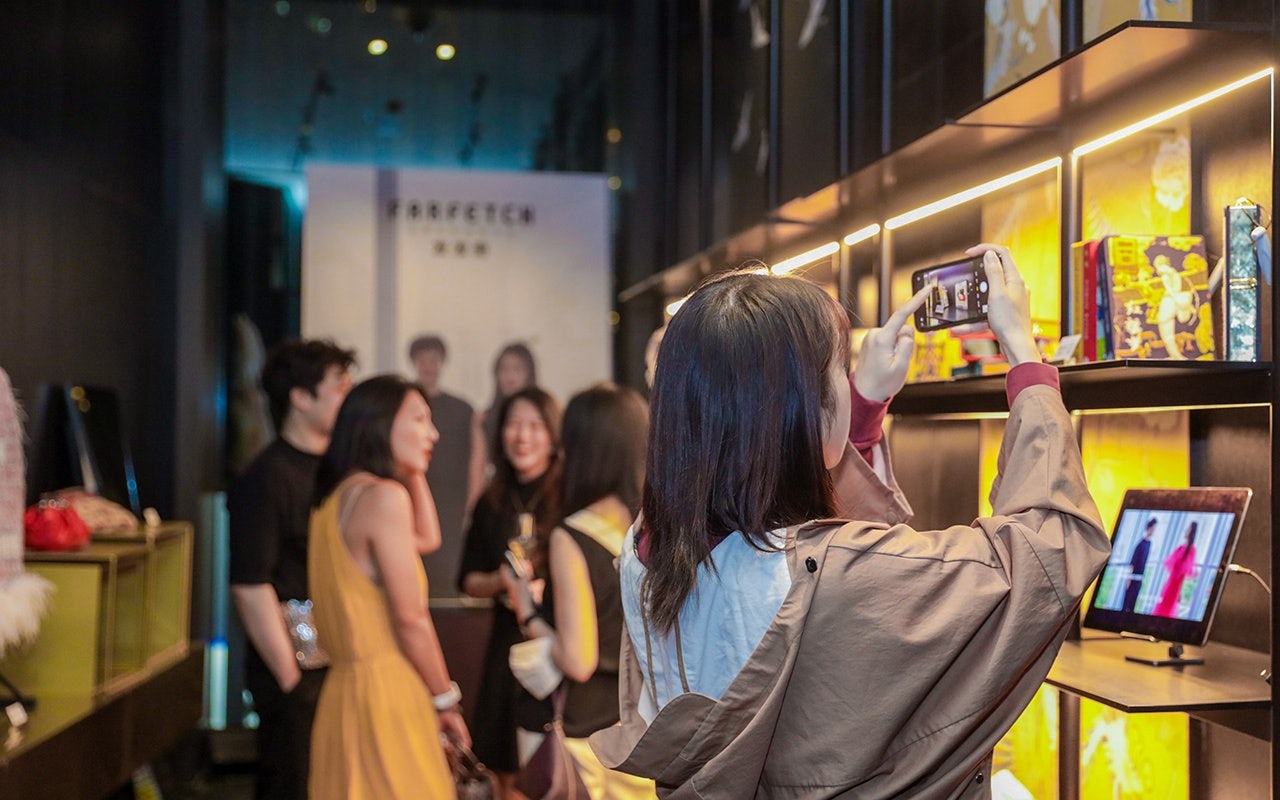What happened
At a Friday event at the luxury hotel Middle House in central Shanghai, all eyes were on Wendy Yu, the millennial fashion investor. She was dressed in a puffy Magenta couture outfit with ankle hemlines — a creation from Chinese designer Huishan Zhang’s Fall 2020 runway collection. The show brought together hundreds of well-heeled guests from the fashion community who were curious to see a Yu-curated selection of clothes and accessories at Farfetch’s first-ever community gallery (and attend a rare physical event in post-COVID-19 China).
After the pandemic, Farfetch decided to work with its partner Swire Properties as a way to help encourage people to go out again. Since July, the 13-year-old luxury e-commerce platform has carried over different voices from the fashion world to its Chinese consumers by becoming “the curator of curators,” said Alexis Bonhomme, the vice president of Farfetch Greater China, to Jing Daily. Thus far, every curator has curated their own gallery at the Swire-owned Middle House’s lobby with clothes and accessories from the luxury e-tailer.

The final curation will be up until September 15, but Farfetch parties will continue to pop up across the rest of the Asia Pacific afterward. “The concept of ‘People, Place, Style’ would work very well in other markets, too, and we see a lot of interest from regions like Japan, Korea, and Taiwan,” Bonhomme added. Similar events will take place in Beijing during Q3, Chengdu in Q4 of 2020, and Hong Kong in Q1 of 2021.
Jing Take:#
Chinese consumers crave physical connections after the pandemic, and the successes of Louis Vuitton’s Shanghai show and Prada’s recent cultural exhibition proved it. As such, Farfetch has also decided to offer unique moments for VIP customers during these activations, such as branded afternoon tea sets and fashion masterclasses.
The online-to-offline (O2O) collaboration between e-tailer Farfetch and developer Swire Properties, which also owns luxury malls Taikoo Li and Taikoo Hui, has them combining their resources and consumers for these events. Farfetch has also worked with brand partners at a non-disclosed amount, which ensures that those brands’ products will have both physical and online exposure. Pooling investments and resources might be something brands — especially the independent ones — might want to look into during the current cash-tight retail environment.
The Jing Take reports on a piece of the leading news and presents our editorial team’s analysis of the key implications for the luxury industry. In the recurring column, we analyze everything from product drops and mergers to heated debate sprouting on Chinese social media.
